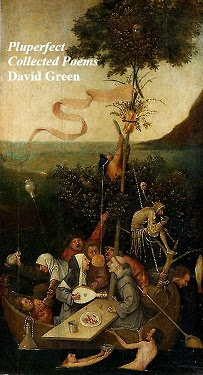
Michael Symmons Roberts, Drysalter (Cape)
It is so hard not to hear 'psalter' in the title of Michael Symmons Roberts' new book that I'm having great difficulty thinking of the real meaning of it as 'a dealer in drugs, dyestuffs, gums, oils, etc.' and the heavy associations are made more redolent when you notice the dedicatee is James MacMillan.
It is more than a modern day prayer book, though, if it is one at all. 150 poems of variously arranged 15 lines each make it longer than Shakespeare's Sonnets (2250 lines comapred to 154 x 14 = 2156) and it is not only noticeably thicker than most 'full- length' collections, which I might have seen defined as 60 poems somewhere, but it also offers a more comprehensive consideration of, what, the human condition or the poet's view of it than many of its peers.
Poetry at its best defies reduction to summary or a perceived set of premises and exegesis and, in many of these poems 'meaning' as such is elusive, although we can trace themes of what is pralleled with what may be, a world here and now which is also one to be transcended, a sense of times in some sort of crisis but dark times that in other contemporary poets are just that in these poems often offer the possibility of redemption and if they are quieter for the most part and less dramatic than much of MacMillan's music, one can think one is appreciating some thread of kinship between them. It will have been said of other work, I'm sure, that the 'meaning' is the poetry itself but we don't want to get too immersed in theory when it is a remarkable and hugely enjoyable book to take pleasure in for its own sake.
There are a number of groups of poems that spread throughout the book. There are Hymns to a number of cubicles, like secular confessionals, that include a photo booth, a karaoke booth, cars, a roller coaster and a ghost train. There are Portraits of the Psalmist in various guises- the old man, in mid-life, as a man in tears, in utter darkness, and, although not explicitly identified as a psalmist, a dove, that,
does not
sing for shattered cities, but her own
nut-hard and ever tightening heart.
And that might represent a way in to the theme of the book, a set of songs still to be sung in limited times when reasons to do so appear to be diminishing.
In Babylon echoes the sentiment in more apocalyptic circumstances but Roberts has possibly been tuned into a Gold FM radio station because,
the songs are so old no one
will forget their tunes. Besides,
they play them all day on the radio.
String Theory describes a forlorn 'scrap of balloon' hanging from the ceiling of a closed-down office, from a past works party, that represents a barometer of the economy, the culture or zeitgest. He is a commentator on and observer of detail like that before he is meditational.
In For Want of a Leap Second, time isn't quite a good enough measure of itself and there are fractional, microscopic stallings such as 'the kiss that stopped at pout'.
The book balances on its dualism of irony and mysticism, the one needing the other, the psalter heard in its title playing off against the dubious peddlar of potions, the poet selling an intoxicant or remedy in his songs, its import fugitive but there somewhere time and again..






